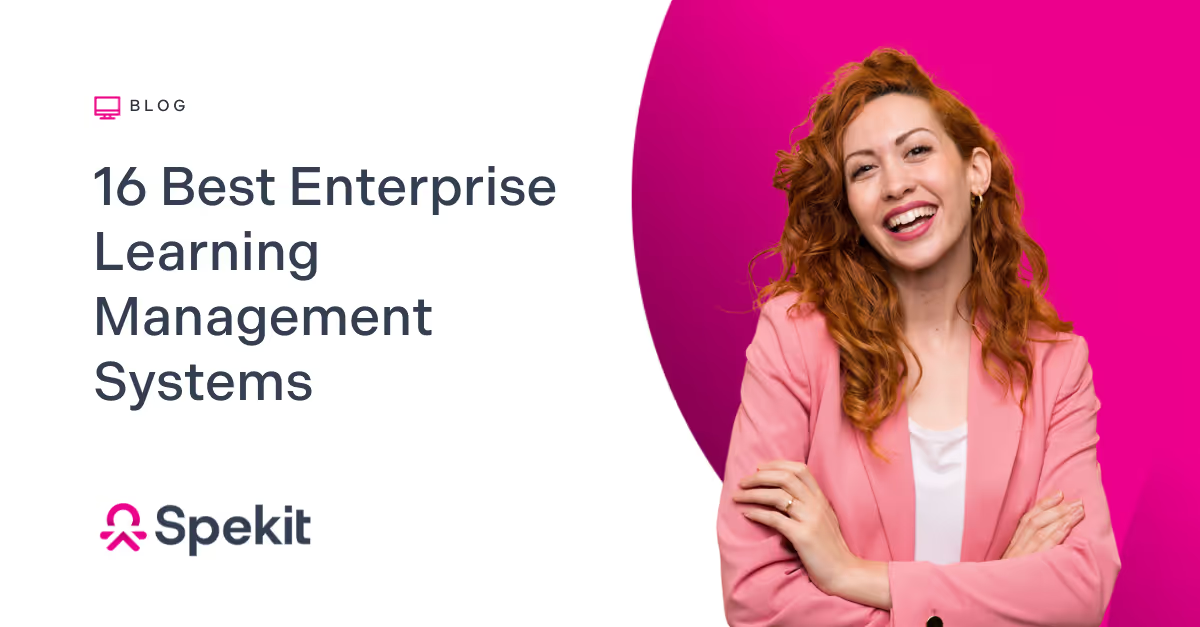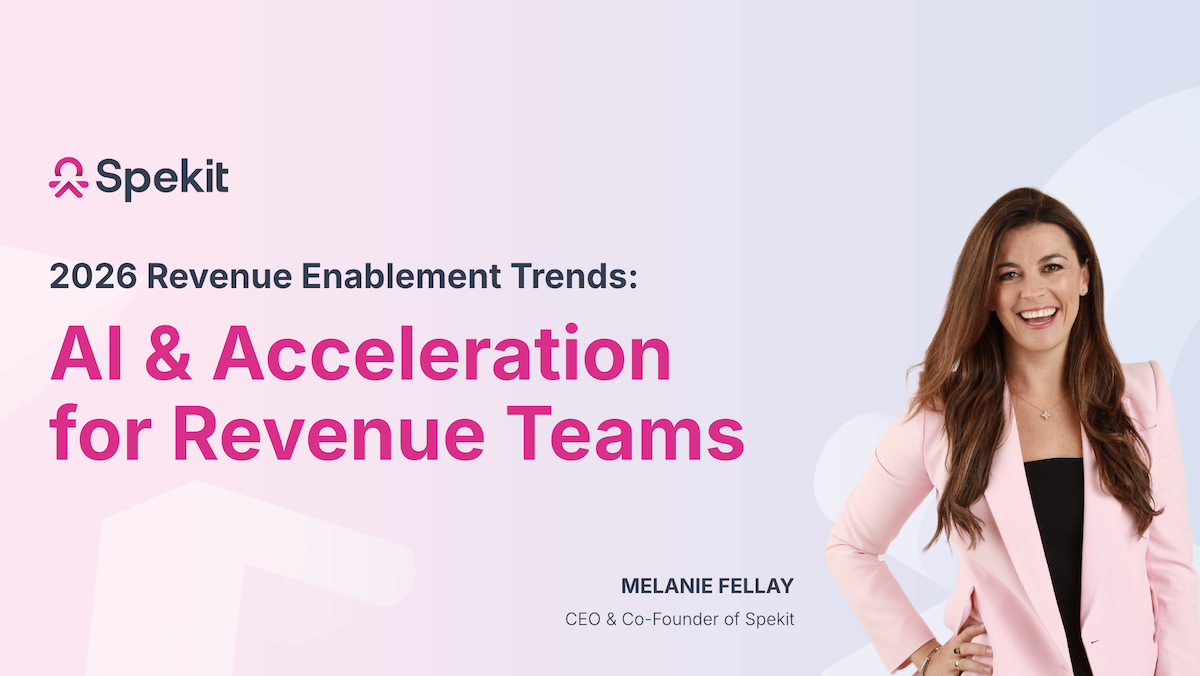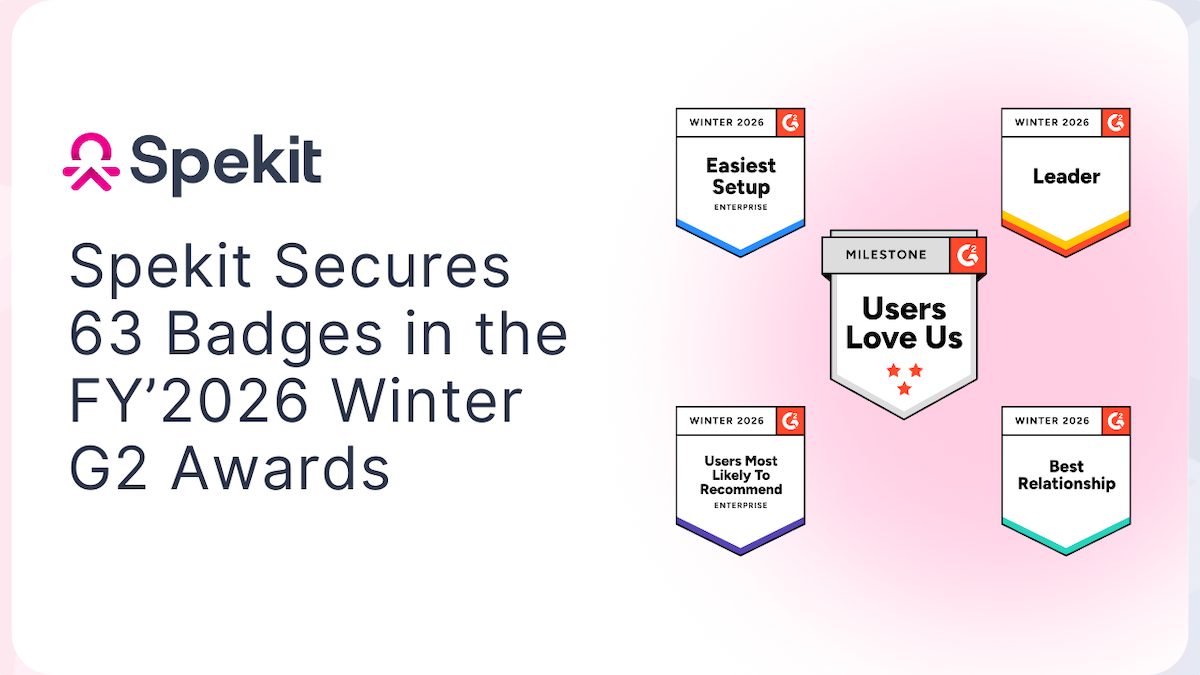The first “electronic learning device” was created in 1924 by Professor Sidney Pressey. Today, Sidney’s simple invention has grown to become what we know as Learning Management Systems (LMS).
And growth isn’t slowing down. There’s been an increasing demand for accessible and convenient learning platforms by individuals, professionals, and organizations. Effective LMS platforms enable organizations to create personalized training sessions to upskill employees.
There are numerous LMS platforms within the market, making it difficult to choose one that fits perfectly into your organization’s learning needs. In this post, we define enterprise LMS and share what they can do for your employee and manager collaboration and productivity.
To help you make an informed decision, we’ll examine the pros and cons of some of the top enterprise LMS solutions.
What is a Learning Management System?
A Learning Management System (LMS) is a web technology or application software that facilitates in-person, virtual, or hybrid learning sessions. It allows instructors to easily deliver lessons, follow up on student progress, and assess student performance.
Typically, an LMS has an interactive user interface and features like gamification, discussion forums, quizzes, and learning customization. These features enhance knowledge management and offer a range of benefits to any organization, primarily optimizing an organization’s learning strategy.
What is an Enterprise Learning Management System?
An enterprise learning management system is a central platform for managing employee training and activities. An enterprise LMS helps companies organize training content, track learning, and oversee certifications.
In short, an enterprise learning solution:
- Eases collaboration and improves productivity by sharpening employee skills.
- Simplifies creating and sharing engaging, compliant digital content in multiple formats.
- Gives employees, managers, and other stakeholders access to the resources they need at any time.
- Saves money on outsourcing costs, reducing employee turnover and improving employee engagement.
- Tracks gaps in learning programs by reporting on individual progress.
Top features to look for in enterprise learning management systems
The best Enterprise Learning Management systems have adaptable features that cater to current learning practices. These features include:
Microlearning
Learning happens in bursts and is more effective when training sessions are broken down into micro-content. Microlearning is more of a sprint than a marathon cram session. Microlearning lets employees and managers review training and how-to materials when needed.
In other words, micro-learning platforms reinforce knowledge by making it easily accessible on demand.
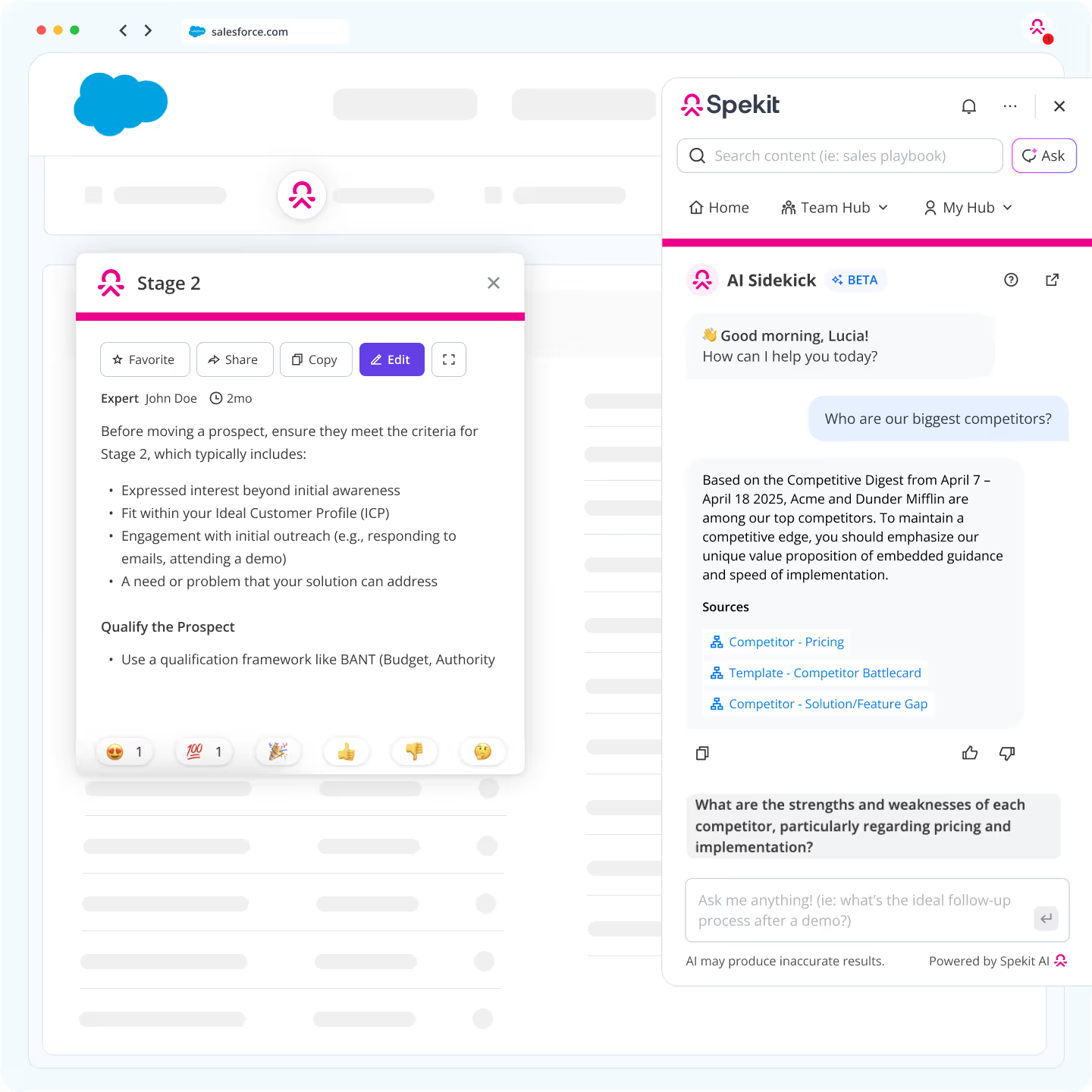
Collaboration & engagement tools
Some people excel at learning on their own. Other times, the best learning happens in communities. Consider scientists working on a medical breakthrough or astronauts sharing a space station.
The best Enterprise LMS encourages collaboration and employee engagement. For example, blogs, wikis, discussion boards, and social interactions such as liking, sharing, and commenting on training content can keep employees interested and participating in your learning program. Aside from that, gamification, such as leaderboards and badges, can motivate employees to learn and engage with their coworkers.
Built-in authoring
This feature allows you to create content directly within your enterprise LMS. This capability means you don’t have to create your content somewhere else, move it, or modify it for your enterprise learning platform.
Testing & assessment
No one loves a pop quiz, but having the ability to test and assess employee progress is vital to optimizing your learning progress. Enterprise LMS offers features that make it easy to create quizzes, exams, and interactive assessments that provide insights into employee performance.
An example of this feature is Spekit’s knowledge checks. Knowledge Checks are bite-sized assessments that enable you to track employee progress and enhance retention through reinforcement learning. They can be integrated into whichever platform your employees work on, making it easily accessible.
Unlike other e-LMS with time-consuming assessment administration, Spekit’s knowledge checks are easy to create, surface, and track. It offers data analytics and insights for monitoring the effectiveness of training content.
Content management
Does the platform you’re considering have a content library? Look into the process of creating, sharing, and editing training content. If the steps are convoluted and the documentation is patchy, you may want to go with another provider.
Analytics & reporting
If you’re looking to track employee learning and the health of your training programs, you’ll greatly benefit from a platform with built-in reporting and analytics. Understanding what content is performing, where users are experiencing friction, and what formats they’re engaging with most can help managers, business development, and revenue leaders invest in the areas that drive growth.
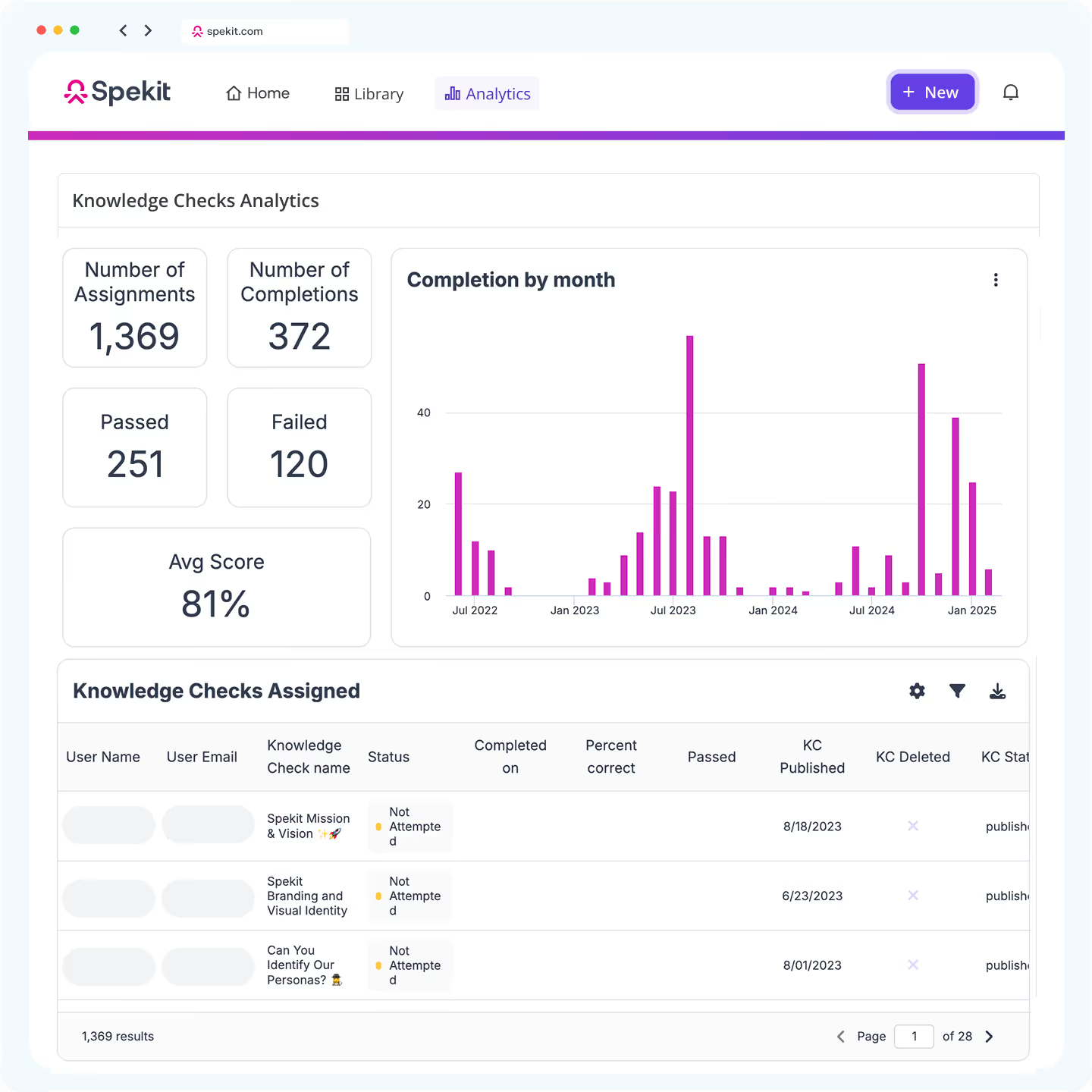
Learning process management
While effectively upskilling your employees should be the priority, using a platform that streamlines the learning process is also important, saving time and cost for the organization. A good platform automates training session creation and delivery, making tracking employee engagement easy.
E-LMS offers a centralized learning platform where organizations can create, organize, and store all training materials. It allows you to administer courses, monitor progress, and control employee access to information. In addition, they improve learning process management by integrating with other enterprise solutions such as HR, CPQ, CRM, and ERP systems.
Gamification features
Gamification reduces distraction and increases employee participation in training sessions. Gamification incorporates game elements such as points, badges, and leader scoreboards, making learning more engaging. It motivates employees to engage in healthy competition and start and complete courses to earn recognition and rewards.
The greatest advantage of using an e-LMS with gamification features is the ability to simulate real-world situations and challenges, encouraging employees to apply theoretical knowledge to actual situations they might encounter in the workplace.
For example, you could train your sales team on best sales methodologies using interactive videos that require them to interact with fictional customers.
Best Enterprise Learning Management Systems
In this section, we’ll look at the top enterprise LMS systems. Here, you’ll have the information to dig deeper into their pros and cons to find the best fit for your needs.
1. Spekit

Spekit is the leading modern sales enablement software built to meet the needs of today's fast-paced sales teams. Spekit's unified platform solves for sales content management, knowledge and enablement, change management, employee onboarding & training, and more.
Spekit differs from traditional enablement platforms by offering a just-in-time enablement solution that combines a personalized rep experience with a scalable content platform. Spekit CMS offers a more intuitive, contextual user experience, focusing on content access and delivery, and is less expensive than others.
Spekit delivers contextual, personalized enablement assistance through AI Sidekick, providing resources within CRM, email, and Slack. AI Sidekick captures context signals to understand a rep's activity. For example, it analyzes email content or call scripts to prep for the next call. Unlike traditional platforms, Spekit integrates directly into reps’ workflows, providing quick access to training and enablement resources within tools like Salesforce and LinkedIn. Through automated sales content management, Spekit provides direct and quick access to sales materials, eliminating the need to spend hours searching for information. Enablement teams can surface the exact playbooks, processes, sales content, messaging, and collateral sales reps need to close pipeline - exactly when and where they're needed.
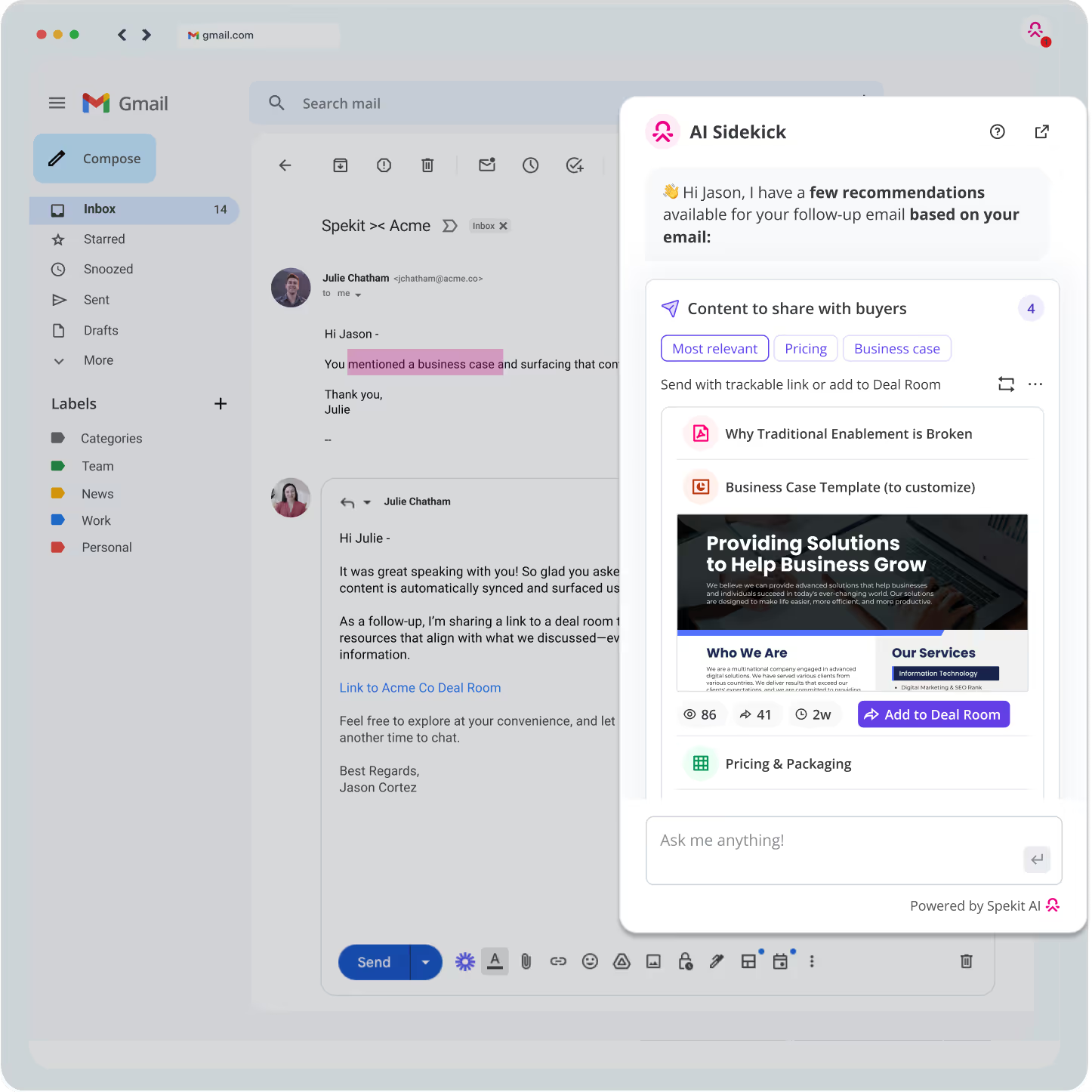
Spekit’s robust native integrations extend beyond applications available in Chrome, enabling users to connect to CRMs, enterprise SSOs, and other communication and sales productivity tools. Businesses that use Spekit can boast of achieving 20% higher quota attainment, 69% more time spent on selling, and 30% faster ramp time.
Spekit Key Sales Enablement Platform Features:
- Content Management Repository / Knowledge base: File storage, file syncing, custom fields, tags
- Content integrations: Real-time content syncing GoogleDrive, Sharepoint, Confluence
- In-the-flow of work extensions: Google Chrome Extension, Microsoft edge extension, Slack, Outlook ensure enablement is delivered where your reps are working
- SSO integrations and support: Okta, Azure, Ping Identity and more
- Governance features: Governance dashboard and reporting, version control, roles, content access permissions
- Trackable links: track buyer’s engagement with sales content using unique shareable links that alert sellers when a buyer engages with content
- Deal Rooms: Deal rooms create a centralized hub for buyers and sellers to collaborate, access key content, and accelerate deals with personalized, trackable resources.
ProTip: Any sales enablement platform you should select should at a minimum have the above functionality. Get a more in-depth overview of these features and how to choose what's best for your business by scrolling to the bottom of this post.
Key Unique Capabilities:
- Browser extension: Embed and surface resources for sales reps across any tool using the Chrome extension
- Embedded in-app guidance (Speks): Use Speks to create easily digestible sales content, training, and guides that reps can access in their workflow and embed with tool tips
- Spotlights: Alert reps of new sales or training content and time-sensitive updates using Spotlights to communicate important announcements and send reminders on tasks to be completed
- Just-in-time Knowledge checks: Assess the retention rates and effectiveness of sales training/coaching with short bite-sized quizzes
Spekit Key AI Features:
- AI Sidekick: the rep's just in time enablement assistant
- Context-aware intelligence layer: Spekit's proprietary context-aware intelligence layer delivers just-in-time, relevant content and guidance within the flow of work.
- AI Chatbot: Reps can chat with AI Sidekick to get answers, draft personalized emails, find the perfect content and more.
- Contextual, deal-driven AI content recommendations: Don't guess, use AI Sidekick next to any email, call or Salesforce Opportunity to get the exact content, training, deal rooms, and knowledge recommended to you automatically.
- Spekit AI Editor: Achieve rapid content authoring, summarize lengthy documents, and translate sales content into multiple languages with Spekit AI. When the content sales reps need is not readily available, Spekit AI enables you to whip up content within minutes. It is powered by generative artificial intelligence and is a content assistant for creating playbooks, tool training, SOPs, persona guides, and objection-handling documents. With Spekit AI, your sales content practically writes itself!
- Automated AI Deduping: Automatically identifies duplicate content
2. iSpring
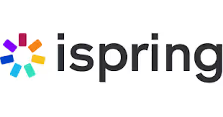
Notable customers: Microsoft, Stanford University, Johnson & Johnson, Bank of America
Best for: eLearning authoring and SCORM
G2 rating: 4.6 / 5.0 stars
Platform overview
iSpring is an eLearning facilitation and authoring tool. It offers a toolkit for creating online courses and an LMS platform for onboarding, upskilling, and certifying professional teams. It is known for its extensive customization features and AI assistant for content creation. However, G2 reviewers reported encountering difficulty publishing to SCORM, and other users have mentioned they would prefer if the translation tool allows voice-over in more languages.
Key enterprise learning features:
- Integrates with PowerPoint for eLearning authoring
- Customizable character builder for online courses
- Coworking spaces for online course-building teams
- Screen reader support
- Web-friendly course format, publishable on various platforms
3. 360Learning

Notable customers: Saffron, Cognizant, Bally’s Corporation, Duolingo, and Smile Brands
Best for: Collaborative learning
G2 rating: 4.6/5
Platform overview: 360Learning is the AI-driven learning platform that unites LMS and LXP capabilities to streamline onboarding, accelerate employee growth, and scale customer education. 360Learning global enterprises transform in-house expertise into collaborative, skills-based learning for employees, customers, and partners.
Combining collaborative learning principles with seamless integrations into systems like SAP and Workday, the platform enables organizations to upskill at scale through expert-led communities of practice built around critical roles, functions, and strategic priorities.
Key enterprise learning features:
- Fast, AI-powered course authoring and insights
- Automated skills mapping, audits, and analyses
- Security and compliance training led by subject-matter experts
- Branded academies to own your training material and develop proprietary skills
- Scalable structure with which to crowdsource learning needs and identify skills gaps
- Everything you need for smart, strategic L&D programs
- 50+ powerful integrations, including enterprise systems like Salesforce, NetSuite, BambooHR, SAP SuccessFactors, Workable, HiBob, and many more.
- User role permissions and access management
- Multi-language support
- 24/7 customer support
4. Tovuti

Notable customers: Coca-Cola, Hyundai, Bosch, Nerdwallet
Best for: People-first learning
G2 rating: 4.6 / 5.0 stars
Platform overview
Tovuti is a people-first enterprise learning platform noted for its user-friendly interface and pre-designed content templates. This platform suits corporate training, learning management, training management, and SMEs. On G2, Tovuti is praised for its ability to generate detailed analytics on user performance. However, some users suggest the platform could improve by providing robust integrations with third-party tools and reducing the cost of implementing Tovuti into companies.
Key enterprise learning features:
- Customizable templates for content creation
- Online LMS that adapts to any device
- AI-generated quizzes, lessons, and interactive assessments
- Enterprise-scale security and privacy protections
- Data analytics for tracking and reporting performance
5. Absorb LMS
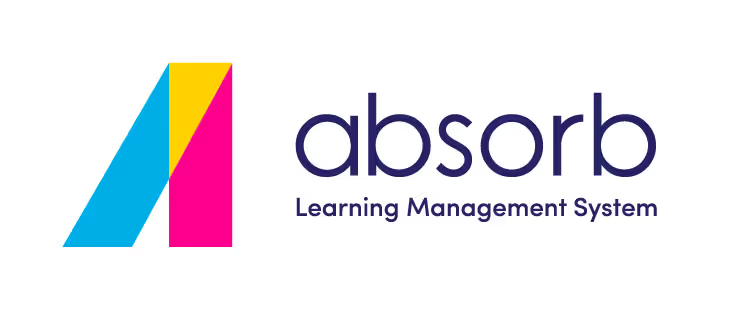
Notable customers: Sony, Johnson & Johnson, GAP, Dale Carnegie
Best for: On-brand training and eCommerce brands
G2 rating: 4.6/5 stars
Platform overview
Absorb LMS is a corporate learning management system known for its ease of use.
The enterprise LMS helps deliver consistent, on-brand training across locations and devices. In addition to its multi-language support, Absorb LMS is known for its responsive design, content library, and social learning features. However, some G2 reviewers mention long implementations and glitches after updates.
Key enterprise learning features:
- Turnkey integrations with leading technology platforms, including HRIS, CRM, conferencing, and content libraries
- 70+ payment gateways. Absorb LMS’s multiple payment gateways simplify migration from other providers
- Live customer support
- PCI and Scorm-compliant
6. BrainCert Enterprise

Notable customers: N/A on the website
Best for: Small to medium businesses
G2 rating: 4.6 / 5.0 stars
Platform overview
BrainCert is a good starter interface for a small or mid-sized business new to the enterprise LMS space. Some G2 reviewers have called out issues with the user interface, calling it “clunky” and “cumbersome.” However, the platform offers simple API integration and responsive customer support. In addition, BrainCert features gamification, seamless audio and video in live classes, and an easy-to-use content library.
Key enterprise learning features:
- Build interactive courses with a drag-and-drop editor
- Live classes with adaptive tests and assessments
- Create and set learning paths with prerequisites, completion rules, and track notifications
- Integrates with PayPal, Stripe, Paystack, and other payment gateways
- Built-in analytics and reporting to track learner progress
7. Lessonly (by Seismic)

Notable customers: CoachHub, Deluxe, McAfee, MeUndies
Best for: Getting a learning program up and running (fast)
G2 rating: 4.7 / 5.0 stars
Platform overview
Lessonly is one of the top enterprise learning systems. It’s known for its easy-to-navigate user interface. The platform also has a solid search, helping learners and admins find constantly evolving training materials and company policies. However, because Lessonly is a long-term learning solution, some G2 users report difficulty retaining information spread across multiple pages. Other reviewers mention they’d like to see more robust analytics capabilities.
Key enterprise learning features:
- Robust knowledge bases with coaching materials, videos, and playbooks
- Leaderboards, scorecards, assessments, and quizzes
- Easy-to-use course plus instructor-led training
- Notifications and real-time updates
- Personalized learning paths
8. Docebo

Notable customers: Wrike, Opentable, Thomas Reuters, Acoustic
Best for: Companies looking to build out their enterprise LMS over time
G2 rating: 4.4 / 5.0 stars
Platform overview
Docebo is an enterprise learning platform that features AI, enabling deep personalization for learners and less manual work for admins. For instance, AI helps you upskill and reskill employees with personalized learning that adjusts with their progress and your business needs. In addition, this platform has features for companies looking for social learning to motivate collaborative learning and knowledge sharing. Many G2 reviewers are satisfied with Docebo’s customer support, but others report that Docebo is not a robust learning platform.
Key enterprise learning features:
- Single sign on (SSO)
- Create audience-specific pages with drag-and-drop editors
- Integrates business systems, such as CRM, web conferencing, and payment gateways
- Create and sell online courses to external audiences across the customer lifecycle
- Supports 40+ languages
9. TalentLMS

Notable customers: Rosetta Stone, Panera Bread, AutoDesk
Best for: Good for midsize companies
G2 rating: 4.6 / 5.0 stars
Platform overview
TalentLMS is an easy-to-implement and user-friendly enterprise learning platform. However, some G2 reviewers have called out the software’s UI feeling dated. Others have raised issues with uploading content to the platform, specifically videos. Despite those callouts, TalentLMS makes it easy to track learning progress, course completion certifications, and discussion board activity.
Key enterprise learning features:
- Well-documented API
- Single sign on (SSO)
- Drag and drop videos, presentations, and docs to training
- SCORM, xAPI, and cmi5 files supported
- Ability to host live sessions
- Tests and quizzes
- Detailed learning paths and courses grouped by categories
- Custom roles and permissions
10. Cloud Academy

Notable customers: Hulu, AWS, Cognizant
Best for: Global tech teams upskilling their cloud knowledge
G2 rating: 4.7 / 5.0 stars
Platform overview
Cloud Academy is an enterprise learning management system for IT teams. The skills intelligence platform helps managers visualize and build employees’ cloud, DevOps, and software development through hands-on learning. In addition, Cloud Academy allows managers to personalize each learner’s development by their roles and skills. On G2, reviewers praise Cloud Academy for its robust online learning environment however other users report the inability to learn offline.
Key enterprise learning features:
- Single sign on (SSO)
- Mobile app for Android and iOS
- Pre-hire and skill assessments
- Personalized training & development plans
- Built-in skill profiles and analytics
- Custom content creation and guided lab challenges
- Cloud & technical certifications
11. Grovo

Notable customers: RSN, TriNet, UPS
Best for: Companies seeking a basic enterprise LMS
G2 rating: 4.2 / 5.0 stars
Platform overview
Grovo is a simple and intuitive learning & development platform. The enterprise LMS helps admins track who has completed their assigned courses. However, some G2 reviewers would like more capabilities when leaving feedback on training. For example, one issue G2 reviewers consistently point out is an employee’s ability to skip videos and entire sections.
Key enterprise learning features:
- Easy-to-create content with the ability to add multimedia, such as photos, GIFs, and video links to training materials
- Curated subscriptions and content libraries
- Ability to watch, read, or listen on demand, anywhere
12. Paycor
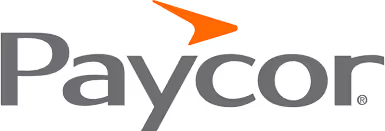
Notable customers: Wendy’s, Detroit Zoo, Pure Dental Brands
Best for: Human Resources
G2 rating: 4.1 / 5.0 stars
Platform overview
Paycor is Human Capital Management (HCM) software that focuses on recruiting, onboarding, payroll, developing, and retaining talent. While Paycor offers pulse surveys, career management software, and a learning management system, the solution doesn’t specialize in enterprise LMS.
The platform is primarily a workforce management solution with a learning management component. However, some G2 reviewers mention issues with API/integrations and poor customer follow-up.
Key enterprise learning features:
- Modular, self-paced learning
- Works on desktop and mobile devices
- Real-time reporting and automated milestones
- Employees and HR can keep track of course progress and completions
- Easily create and publish content with Paycor’s native course builder
13. LearnUpon

Notable customers: Zendesk, Logitech, Twilio, USA Football
Best for: First-time LMS users
G2 rating: 4.6 /5.0 stars
Platform overview
LearnUpon is an enterprise learning solution ideal for organizations new to LMS or who want an easy-to-use platform to track employee progress. In addition to its intuitive interface and navigation, many G2 reviewers call out LearnUpon for its stellar customer support. However, some users have reported issues getting their learners to create an account on the platform.
Key enterprise learning features:
- Responsive customer support
- Ease of enrollment and assigning training
- Clean, well-organized interface for admins and users
- Works across iOS, Android, desktop, and tablets
- Integrates with Shopify, Salesforce, Zapier, Gong’s Embedded Player
- Accepts PayPal or Stripe and supports multiple currencies
14. Continu

Notable customers: Upwork, Coinbase, CarGurus
Best for: Content delivery and tracking
G2 rating: 4.7 / 5.0 stars
Platform overview
Continu is known for its dashboard and user interface. G2 reviewers give the enterprise LMS high marks for ease of use and engagement. In addition, Continu’s built-in progress tracker makes it easy for employees and managers to keep track of their learning progress.
Most reviewers have positive feedback, like its easy navigation and structured layout, but some have encountered issues finding the continue button, scroll-depth and seeing what courses they’ve completed and their scores.
Key enterprise learning features:
- Easy-to-build learning tracks, courses, resources, and workflows
- Articles and wikis with embedded media and files
- Assessment and quizzes
- Ability to automate, assign, and share training materials with ease
- Personalize learning with Smart Segmentation™; tailor learning by geography, department, or custom variables
- Advanced search and discovery with personalized recommendations
- Integrates with Slack, Google Drive, and other third-party solutions
15. ProProfs

Platform overview
ProProfs is an enterprise LMS to help you train employees no matter where they are. The platform features a knowledge base with a help center, manuals, and shared knowledge. ProProfs also has a quiz maker that lets you gauge your employees’ learning progress.
The enterprise LMS enables users to ask and answer questions, take polls, and create and play online puzzles. Most reviewers on G2 repeatedly recognize ProProfs for its robust knowledge base and customer service, but some complain about its slow speed.
Key enterprise learning features:
- Q&A forum and learning community
- Built-in project, task, and time-tracking
- Quiz maker, flashcards, gamification
- A robust help desk with ticketing and chat
- Live chat support for customers in real-time
- eCommerce store to sell courses, quizzes, and tests
16. SAP Litmos

Notable customers: ADP, IBM, Fitbit
Best for: Beginners focused on ease of use
G2 rating: 4.2 / 5.0 stars
Platform overview
SAP Litmos is easy to use and offers on-brand customizations, especially if your users have coding knowledge and experience. The enterprise LMS also provides the option to have your own URL. Users are satisfied with the platform’s content authoring tool and branding features. However, eLearning industry reviewers have flagged issues with the platform’s reporting features. Other reviewers call out SAP Litmos’s value for the money and low learning curve.
Key enterprise learning features:
- Intuitive interface and custom branding
- Multi-language and localization
- Assessments, quizzes, surveys, and certificates of completion
- eCommerce shopping cart and the ability to sell online courses and schedule live courses
- Real-time reporting
- Supports Web, iOS, and Android
How to Select the Best Enterprise LMS for Your Business
Many enterprise LMSs are available in the market; however, not all are perfect for your organization. It is important to consider your goals and how easy it is to integrate whichever platform you choose into your organization’s process. Here’s how to select the best platform:
Use cases
Use cases refer to specific scenarios or situations where the LMS will be utilized within the organization. It also describes how different organizational groups interact with the LMS to achieve their learning and training objectives.
Before choosing an enterprise LMS, it’s helpful first to understand:
- The Target Audience: Identifying who will use the LMS (e.g., new hires, existing employees, department-specific teams) and their unique training needs.
- Learning Objectives: Understanding the goals of the training programs (e.g., onboarding, skill development, compliance training) and how the LMS can facilitate these objectives.
- Functional Requirements: Determining the specific features and capabilities needed in the LMS to meet the identified training needs and objectives (e.g., content customization, interactive modules, tracking and reporting tools).
By defining these use cases, you can make a more informed decision when selecting an enterprise LMS.
Implementation speed
When considering enterprise LMS software, ask about the platform’s implementation time. For instance, if you need to get a system up and running fast, look for an enterprise LMS with a quick implementation timeline.
However, remember that implementation is only half the battle! User adoption is essential to ensure your employees and managers are learning and putting their knowledge to work.
So, while implementation speed is a critical consideration, it’s not the only one.
Usability
The third big enterprise LMS consideration is useability.
- How easy is the platform to learn?
- Does it have a simple interface? Can you set different roles and permissions?
- What kind of content formats can you deliver?
- Does the platform come equipped with analytics and reporting tools?
Expert tip: Interview the people using the platform to learn more about their day-to-day responsibilities and long-term goals to ensure the enterprise LMS has features that can help them perform their jobs better.
Scalability & pricing
Another factor to consider is pricing and how well an enterprise LMS will scale to your organization.
Some solutions are better suited for global enterprises, while others work better for mid-market businesses or startups.
Additionally, pricing may vary based on the number of users. Look into each enterprise learning management system’s pricing models to avoid unplanned expenses. The best tools will adapt to improvements in your methodology and processes.
Compliance
Compliance and security help organizations meet legal, regulatory, and internal policy requirements. If you're in finance, healthcare, and manufacturing, this is critical, since compliance is rigorously monitored—and non-compliance can result in severe penalties.
Your enterprise LMS should be able to deliver any training modules that are required by laws or industry standards, such as workplace safety and anti-discrimination policies. Laws and regulations are changing all the time, so it needs to be easy to update training materials.
The system should also be able to track employee progress and assessment results and generate detailed reports for audits or inspections.
Localization
An enterprise learning platform with localization supports translation across the platform, so you won’t have to create multiple instances of an object for each language — saving you precious time by redlining the added effort.
Localizing your training documents will boost engagement from employees from diverse cultural and language backgrounds, promoting inclusivity. Localization also involves designing user interfaces to fit into cultural nuances that employees can relate to.
Integrations
E-learning platforms cannot exist in isolation. You must import employee data, materials, and other information for effective training delivery. The e-LMS platform you choose should be able to integrate with your existing technology stack seamlessly.
This helps reduce time-consuming activities like manually transferring data to the LMS. Examples of integrations that a platform should have include analytics, certifications, CRM, sales enablement tools, and customer success.
Benefits of Using Enterprise Learning Management Systems
These platforms offer numerous benefits, including:
Reduced Expenses & Increased Profits
Traditional training methods are costly. Organizations had to incur the cost of renting training facilities and equipment, hiring a professional trainer, and transporting employees to training centers. According to research in 2019, the average budget used by large companies for training employees was USD 17.7 million.
With e-LMS platforms, you don’t have to incur these costs. Training sessions can be facilitated online, and AI assistants can create courses, significantly reducing expenses and driving revenue enablement.
Ability to Track Training Progress
Learning and development managers and training professionals often have issues manually tracking every employee's progress and performance, reducing efficiency. These platforms have features that automatically track every aspect of e-learning sessions. They also provide real-time analytics and reports that enable you to track training progress easily.
Eliminates Repetitive Tasks
Let’s say you were running an in-person training program that requires you to administer physical copies of all training materials. You would spend significant time printing these materials, sharing them with participants, and explaining the information contained in them. This consumes time you would spend actually teaching or monitoring participants. An e-LMS eliminates repetitive tasks like this one.
Since e-LMS provides an online centralized learning platform, you can create a single version of training materials, tutorials, and how-to guides that employees can access anytime. This reduces the need for you to perform certain tasks continuously.
Challenges to Enterprise Learning Management Systems
Enterprise LMSs have transformed learning, but they still have drawbacks. For example, many don’t offer contextual learning experiences. As a result, the knowledge of these enterprise learning management systems remains untapped.
Friction persists because employees and managers must leave their workflows to log into a learning hub. People moving between systems distracts them from their tasks and slows them down, even the most focused ones.
Just-in-time learning solutions like Spekit can help enterprises deal with dipping engagement and attention spans.
Use the Best Enterprise LMS
The success of your learning and development efforts depends mostly on choosing the right learning management system for your employees. But, choosing the best enterprise LMS isn't just about picking the most feature-rich or popular option–it's about aligning the tool with your team’s needs.
If you're looking to drive changes, promote best practices, ensure tool adoption, and easily onboard new employees, Spekit is the best tool for your business. It can be used as an LMS–but even better thanks to just-in-time learning.
Just-in-time learning surfaces information to employees when and where they need it. This type of learning has additional benefits like:
- Not having to remember additional passwords
- Opening separate tabs
- Or logging into multiple tools to find, learn, and share information
Additionally, just-in-time learning provides bite-sized chunks of information, unlike a traditional enterprise LMS.
From easy content creation to real-time analytics to help track progress, Spekit’s centralized platform focuses on upskilling employees while giving them the best learning experience possible.

